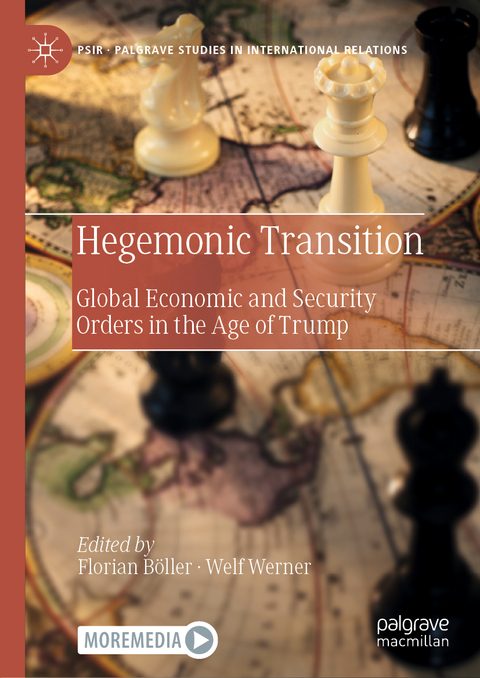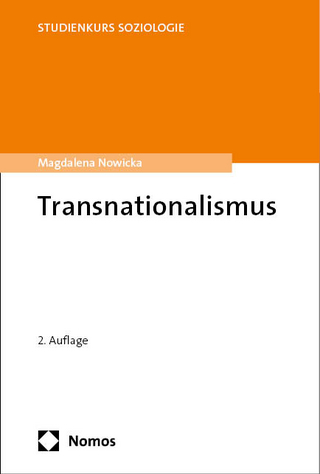
Hegemonic Transition
Springer International Publishing (Verlag)
978-3-030-74504-2 (ISBN)
This book offers an assessment of the ongoing transformation of hegemonic order and its domestic and international politics. The current international order is in crisis. Under the Trump administration, the USA has ceased to unequivocally support the institutions it helped to foster. China's power surge, contestation by smaller states, and the West's internal struggle with populism and economic discontent have undermined the liberal order from outside and from within. While the diagnosis of a crisis is hardly new, its sources, scope, and underlying politics are still up for debate. Our reading of hegemony diverges from a static concept, toward a focus on the dynamic politics of hegemonic ordering. This perspective includes the domestic support and demand for specific hegemonic goods, the contestation and backing by other actors within distinct layers of hegemonic orders, and the underlying bargaining between the hegemon and subordinate actors. The case studies in this book thus investigate hegemonic politics across regimes (e.g., trade and security), regions (e.g., Asia, Europe, and Global South), and actors (e.g., major powers and smaller states).
lt;p>Florian Böller is Professor of International Relations at the University of Kaiserslautern, Germany. Previously, he taught at Heidelberg University and held fellowships at the University of Wisconsin-Madison and Harvard University. His research on US foreign policy has appeared in the British Journal of Politics and International Relations, European Political Science Review, Contemporary Security Policy, and other journals.
Welf Werner is Professor of American Studies at Heidelberg University, Germany, and director of the Heidelberg Center for American Studies. He was a John F. Kennedy Memorial Fellow at Harvard University and a research fellow at Johns Hopkins University and George Washington University. His research and teaching focus on US domestic and foreign economic policies.
Introduction: Hegemony, Contestation and Transition.- Externalizing the Costs of Leadership: The Impact of Changing State-Societal Relations on US Hegemony.- Broken Social Contract: The Domestic Roots of US Hegemonic Decline in the World.- Exit from US Leadership: Global Trade Policy and Trump's "America First" Doctrine.- Decay of US Economic Hegemony? Intellectual Property Rights, Dollar Centrality, and US Geo-economic Power.- Leading by Example or Extortion? US Leadership Role Transition and the Non-Proliferation Regime.- The End of NATO as We Know It: Reconfiguring Transatlantic Security Relations.- Institutional Contestation: The Trump Administration and International Organizations.- Spoiler State: Russia's Status Seeking and Hegemonic Ambitions.- Contested Cyberspace: China's Increasing Role and Power in Technology Governance.- Between a Rock and a Hard Place: India's Response to the Hegemonic Decline of the West.- Dual Hegemony: Brazil between the United States and China.- Fast-track towards a Hegemonic Transition: Corona and the Decline of US Hegemony.- Conclusion.
| Erscheinungsdatum | 19.08.2021 |
|---|---|
| Reihe/Serie | Palgrave Studies in International Relations |
| Zusatzinfo | XXI, 298 p. 5 illus., 1 illus. in color. |
| Verlagsort | Cham |
| Sprache | englisch |
| Maße | 148 x 210 mm |
| Gewicht | 544 g |
| Themenwelt | Sozialwissenschaften ► Politik / Verwaltung ► Europäische / Internationale Politik |
| Sozialwissenschaften ► Politik / Verwaltung ► Vergleichende Politikwissenschaften | |
| Wirtschaft ► Volkswirtschaftslehre ► Wirtschaftspolitik | |
| Schlagworte | hegemony • international order • Power Transition • transatlantic relations • US decline • US Foreign Policy |
| ISBN-10 | 3-030-74504-X / 303074504X |
| ISBN-13 | 978-3-030-74504-2 / 9783030745042 |
| Zustand | Neuware |
| Haben Sie eine Frage zum Produkt? |
aus dem Bereich


